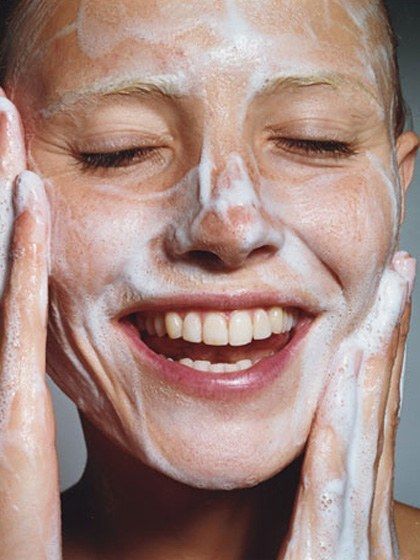Investing time and money into a good skincare routine might mean some extra hassle, but it’s definitely worth it in the long run.
Your skin is the largest organ in your body and also the least protected compared with the others, so it’s important to give it all the support that it can get. Neglecting your skin can lead to blemishes, wrinkles, acne, and sun damage, which obviously, you don’t want.
Thankfully, even if you’re on a tight student budget, there are plenty of things that you can do to nourish your skin and keep it looking vibrant and healthy for years to come.
Moisturize Daily:
Moisturizing on a daily basis is one of the best things that you can do for your skin, and it’s fairly easy and cheap too. After washing your face in the morning and evening, use an oil-free moisturizer to add some hydration and leave your skin feeling soft and smooth. Not only will your skin look better, but the moisture will help your skin cells repair themselves, reduce blemishes, and regulate the amount of oil your skin produces.
Get a moisturizer with an SPF of at least 15 to protect your skin from sun damage throughout the day and use a good night cream to support skin restoration when you go to bed. When it comes to moisturizing your whole body, the best time to do this is straight after a shower to replenish any oils that have been washed away. The best part is that you can find several decent moisturizing products at great prices; you don’t have to invest in an expensive one to see results.
SEE MORE: Skincare for Active People: How to Keep Your Skin Clean and Glowing
Exfoliate:
Exfoliation is often overlooked, but it’s essential to a complete skincare routine with the best results. When you exfoliate, you remove the top layer of dead skin cells that clog up your skin and pores, uncovering the fresh new cells beneath. This helps to increase blood circulation, leaves your skin looking healthier and more vibrant, and can help relieve some skin conditions. There are plenty of exfoliating products out there to suit every budget.
You can use body and face scrubs, which are basically soaps that contain small beads that gently exfoliate, or save money in the long run by investing in a good exfoliating glove that you can use with your regular shower gel or bar soap. Exfoliating a couple of times a week is usually sufficient.
Stay Hydrated:
Students on accelerated BSN nursing programs from Baylor University Online know that staying hydrated is essential for every aspect of your health and wellbeing. Sitting at your desk studying and forgetting to drink water will leave you dehydrated, which can lead to:
- Headaches
- Lack of focus
- Reduced energy
- Dry skin
- Breakouts
Thankfully, staying hydrated while you study is easier than ever, and it doesn’t have to cost a lot. Invest in an insulated water bottle that you can fill up at the beginning of the day and keep it on your desk. If you are not a huge fan of the taste of plain water, you might want to consider influencing it with some of your favorite fruits; simply adding a slice of lemon to your water can make a big difference. If you struggle to remember to drink, there are free apps that you can download to your smartphone to remind you to drink water and track how much you are drinking, or you can use the timer app.
Eat Skin-Boosting Foods:
Filling yourself up with a healthy, nutritious diet is another important aspect of your life as a student. Turning to convenience foods and takeout might be tempting when you’ve got a lot of work to do, but you probably already know that doing this too often can have disastrous effects on your skin, leading to breakouts and acne. The good news is that there are plenty of foods that are excellent for your skin that do not require a lot of preparation. In fact, many of the best foods for your skin make great snacks that you can have on your desk as you study. Eat more:
- Avocados
- Oily fish
- Walnuts
- Sweet potatoes
- Broccoli
- Tomatoes
- Sunflower seeds
- Red and yellow bell peppers
- Soy
- Dark chocolate
- Red grapes
- Green tea
Along with helping your skin say soft, clear, and fresh, filling up on these healthy and nutritious foods will help you feel better and perform better while studying. You will have more energy and find it easier to focus on what you are doing, which is always a bonus!
Exercise:
You know that exercise is good for your waistline, but did you know that it is also good for your skin? When you exercise, you’re not only toning up your muscles and tightening your body up but sweating also releases toxins from the skin. And when you shower afterward and apply a good moisturizer, your skin will be a lot cleaner and toxin-free compared to before. Anything that gets your heart racing and sweat beads forming on your forehead is a good choice; whether it’s a brisk walk or jog or a bike ride with friends.
Try Some Natural Treatments:
There are plenty of affordable, all-natural remedies that you can use on your skin to treat any blemishes and clear up skin complaints. Tea tree oil is very accessible and affordable, and it is one of the best essential oils to use for relieving skin conditions like psoriasis, eczema, and acne. Aloe is another plant extract that’s very soothing on the skin and has a range of beneficial anti-inflammatory properties. Witch hazel is ideal for calming irritated skin and tightening your skin. There are plenty of natural ingredients that you might already have in your home, like lemon and honey, that are filled with antioxidants that will leave your skin healthy and glowing.
If you’re on a tight student budget, the price of some skincare products might not be very appealing. But the good news is that even if you don’t have a lot to spend on looking after your skin, there are many effective budget-friendly strategies for keeping it soft, healthy and glowing.

